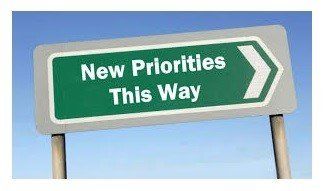Questions a Reward Consultant Will Ask You
Jane Baalam
January 8, 2023
and why we need to know......
I am often surprised when I speak to potential new clients that they are nervous about talking to consultants. Thinking it about it though, its generally because they don't know what to expect. So here's something I think will help settle the nerves. these are the questions a reward consultant is likely to ask you when you make that first tentative contact:
Whats the nature of your business? We will need to understand what your business is about - what service you offer, to whom, in which sectors and whereabouts are all key questions that will help us determine whether or not we can help you, or whether there is another consultant better placed. Believe it or not, the smaller reward consultants quite often recommend each other on the basis that we know who has the better databases on which sectors (as you would expect, this practice is probably not so common among the bigger consultancies).
What problem are you trying to solve? Be clear about the outcomes you want - even if you don't know how we can provide it. If we understand what you are trying to achieve, we'll take you the process. We will also be better placed to ensure that you get what you need. We can help deal with everything from "the Board want us to benchmark our CEO" to “staff don’t use our benefits” and "we need to review our reward strategy".
What is driving the issue? All clients are unique and have different drivers and issues behind the work they want to undertake. Focussing on what is driving your query or project will help us to identify what you need from us. "The Board want us to benchmark our CEO" will get a different response to, "we need to know how much a project manager is paid". Consultants will normally have the experience needed to guide you in the right direction.
What is the scope of your project? This can be quite a big question. The scope and volume of work behind the project will of course impact on the cost. Think about the fact that there may be some significant economies of scale if you are doing a major piece of work and include a larger volume of roles. We normally will want to know the number of job roles and FTE involved in a benchmarking project, or the different terms and benefits to be included, or the types of pay structure you currently have. Also think about what areas are no-go and why – we know then what to avoid.
When do you want it completed by? This can be difficult to tie down and we will tell you if you are being realistic. We may be able to turn around a single piece of benchmarking in 48 hours, but if you ask us to review your pay structure in 3 weeks, we might balk at the idea. When you’re thinking about timescales don’t forget to include time for approvals and communications processes. Working back from an end date will help identify if you are being realistic.
What resources are available at your end to support your project? This one often impacts on timescale as projects can be delayed while job descriptions are updated, or we wait for payroll to run the salary information we need, or the new HRM wont be in place for another month. Also, think about whether or not directors/managers and other stakeholders will need to be involved and what their availability is.
What information will you have for us and how do you plan to get it to us? We will usually discuss information and data needs with you. We often put a list in the proposal, or provide a datasheet for you to complete. One of the biggest issues we have though is ensuring we are GDPR compliant. A quick note here for your GDPR specialist - this is data being used for legitimate purposes and we always recommend that data is anonymised, and that spreadsheets and other documents are password protected.
Who is going to be involved in the project? We will work with whoever you tell us to, but we need to ensure that you have involved everyone you need for successful implementation of your project. Your team, your key stakeholders, staff working groups, IT and internal communications teams may all need to be involved in a major project. Conversely for a small piece of benchmarking it might just be you and the manager.
And the thorny one - What's your budget looking like? Don’t be shy. I know we all hate talking about money in the UK, but we need to understand your budget so that we can make sure we offer the right options. And there are always options for a tighter budget – there may be more you can do in-house with just ad hoc support from your consultant, or different approaches that are more cost effective. Ask the question if you think you have budget constraints.
Hopefully this insight will help settle your nerves about dealing with a consultant and encourage you to pick up the phone, or make that contact. If you have any burning questions though, feel free to ask them.









